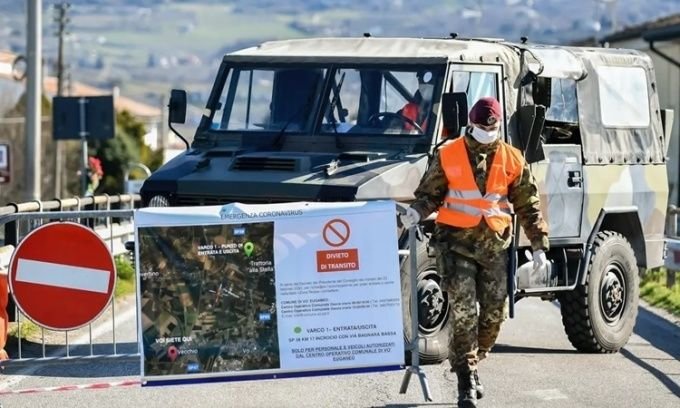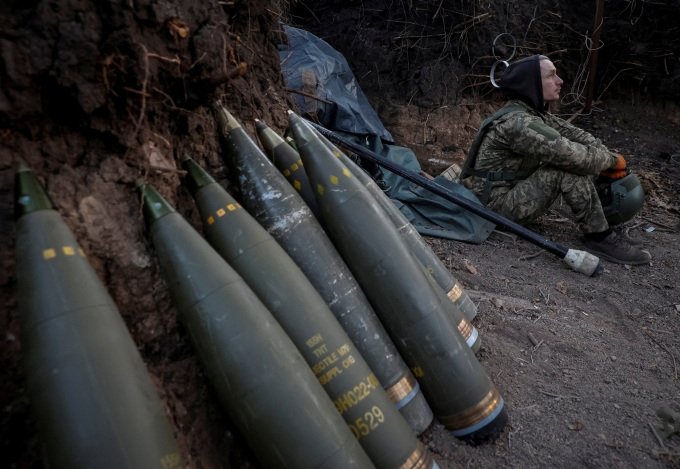
How an Italian town stopped the chain of nCoV infection
Italy is the second largest epidemic area in the world, with the number of nCoV infections constantly increasing every day.
Italian army soldiers set up barricades at the entrance to the town of Vo Euganeo on February 28.
However, Vo Euganeo, a small town with a population of 3,300 in the Veneto region of northern Italy, one of the areas hardest hit by Covid-19, claims to have wiped out the chain of infection.
Vo Euganeo saw the number of infections increase rapidly in the third week of February and reported the first death from nCoV in Italy on February 21.
No one may travel to or from Vo Euganeo.
This move helps isolate infected people before they even have symptoms, while also preventing the virus from spreading further.
Within 14 days, nCoV was wiped out from the community.
After two weeks of strict blockade and absolute isolation of infected people, when testing was conducted again, only 0.25% of town residents were infected with nCoV.
In the first round of testing, 89 people in Vo Euganeo tested positive, but in the second round of testing, the number of cases dropped to 6.
By combining widespread testing and locking down the entire town, Vo Euganeo prevented the number of infections from getting out of control, thereby minimizing pressure on the health system.
Andrea Cristani, a professor of microbiology at the University of Padua, Italy, who helped carry out the tests, and Antonio Cassone, former director of infectious diseases at the Italian Institute of Health, think Vo Euganeo’s strategy could become
`Starting March 6, together with researchers at the University of Padua and the Red Cross, we tested the entire population of Vo… including those without symptoms. This
Outside Vo Euganeo as well as many other places around the world, officials are choosing to only test people with symptoms.
According to Cristani and Cassone, asymptomatic or almost asymptomatic cases account for 70% of people infected with nCoV.
In Vo Euganeo, testing the entire community provides a complete picture of the epidemic, helping authorities determine how many people have the virus, how many have transmitted it.
But applying Vo Euganeo’s approach in a large city or on a national scale is extremely difficult.
The government can identify and implement blockades based on outbreaks, test and quarantine each person in that community, regardless of symptoms or not, then track recent contacts and contacts, and test.
Vo Euganeo’s widespread testing method is also what the World Health Organization (WHO) recommends in a recent statement.
`We just have a simple message to all countries: Test, test, test,` WHO Director-General Tedros Adhanom Ghebreyesus said last week at a press conference.


